PAWS: How Going Away For Treatment Helps People Cope
Entering recovery after struggling with addiction is a brave step, and many people go through a lot of emotional ups and downs in the beginning stages. Some of these changes in feelings are due to life circumstances and adjusting to life after addiction, but for some people, the journey might not be smooth sailing right away. After detoxing, some people experience something called Post-Acute Withdrawal Syndrome (PAWS), a type of longer-term withdrawal syndrome that can take a month to over a year to resolve.
PAWS is common, but it depends on individuals and the drug they used; up to 90% of people with opioid use disorder experience PAWS at some point, while about 15% of people who misuse benzodiazepines experience it.
What Does Post-Acute Withdrawal Feel Like?
People have described PAWS as feeling like a lingering hangover from drugs or alcohol that can bring mood swings, trouble sleeping, anxiety, and foggy thinking. These symptoms can’t be controlled by the person who has them, and it's sometimes tough to cope with because the symptoms can come and go. It can feel frustrating, but you’re not alone.
With understanding and support, people can learn how to manage PAWS and keep moving to a healthier, happier life, especially if they have the symptoms while in treatment.
PAWS and Going Away For Treatment
Some people discover that going away from home is the exact treatment they need to manage their PAWS symptoms and focus on the road to recovery. Going away for treatment can be a transformative experience for many people. While the road to recovery may be winding, the support and help you get while inpatient can help you navigate its challenges.
Here’s how going away for treatment may help with PAWS:
- Removal from Triggers: Being away from the environment where substance use occurred can reduce exposure to triggers that may exacerbate symptoms of PAWS. These triggers include people, places, and routines associated with substance use.
- Structured Environment: Treatment facilities provide a structured environment with daily schedules, therapy sessions, and activities that support recovery. This structure can help you establish new routines and coping mechanisms.
- Professional Support: Treatment centers have trained addiction recovery specialists, including therapists, counselors, and sometimes medical staff, specializing in addiction recovery. These professionals can provide guidance, support, and evidence-based treatments that help address PAWS symptoms effectively.
- Peer Support: Connecting with others who are also recovering can provide valuable peer support. Being in a treatment facility with others who understand the challenges of addiction reduces feelings of isolation and provides much-needed encouragement.
- Focus on Recovery: Being away from home allows individuals to focus on their recovery without the distractions and responsibilities of daily life. People can dedicate time and energy to learning about addiction, developing coping skills, and making positive changes.
- Safe Environment: Treatment centers offer a safe, supportive space where people can detox safely and receive medical supervision if needed. It’s imperative to be safe during the early stages of recovery, when people may be vulnerable to relapse or experiencing intense withdrawal symptoms.
- Spiritual Awakenings: Some people describe going away to treatment as an experience that takes them out of themselves and allows them to have a spiritual awakening. For example, many treatment centers in California or Mexico provide quiet and space for reflection in a gorgeous, uplifting environment.
Going away for treatment is a personal decision. It will help you escape from your familiar surroundings and remove you from environmental triggers. It won’t, however, cure you. PAWS symptoms may linger past treatment. Once you finish your time at a recovery program, you’ll still have to continue working on yourself and keeping sobriety at the forefront of your life.
What Other Help Do Inpatient Treatment Centers Offer?
Drug treatment centers can assist people with various aspects of their recovery journey beyond just overcoming substance abuse. Here are some additional ways they can help:
Mental Health Support
Many people struggling with substance use also have co-occurring mental health disorders such as depression or PTSD. Treatment centers provide therapy sessions with trained professionals who can help people work on coping mechanisms and symptom recognition. Through counseling and support groups, people learn new skills to help manage their mental health effectively.
Behavioral Therapy
Drug treatment centers often utilize behavioral therapies like Cognitive Behavioral Therapy (CBT) or Dialectical Behavior Therapy (DBT). These therapies help people recognize and change harmful thought patterns and behaviors associated with addiction. New, healthier coping skills for stress and triggers can help relapse risks and build a more positive outlook.
Life Skills Training
Addiction can often derail a person's life, affecting their ability to manage everyday tasks and responsibilities. Treatment centers sometimes offer life skills training (or referrals to programs) to help people rebuild their lives. People may learn practical skills such as budgeting, job readiness, and time management, empowering addicted people to thrive independently after leaving the treatment program.
Relapse Prevention Strategies
Recovery is an ongoing process, and relapse tends to be a common challenge. Treatment centers equip people in recovery with relapse prevention strategies to help them stay stable. Relapse prevention is usually a goal for people new to recovery. Meeting this goal may involve identifying triggers, developing healthy coping mechanisms, and creating a solid support network to turn to during difficult times.
Getting Help at After the Storm Recovery
We help our clients begin their journey to overcome a substance use disorder, cope with PAWS and other recovery challenges in a serene community.
Our cozy, peaceful, recovery-oriented environment offers a break from the stressors and temptations of everyday life, allowing our guests to focus entirely on their recovery.
Through therapy, counseling, and holistic treatments, we're here to help our guests make lasting changes and embrace a happier, healthier life. Get in touch to learn more about our recovery programs.
